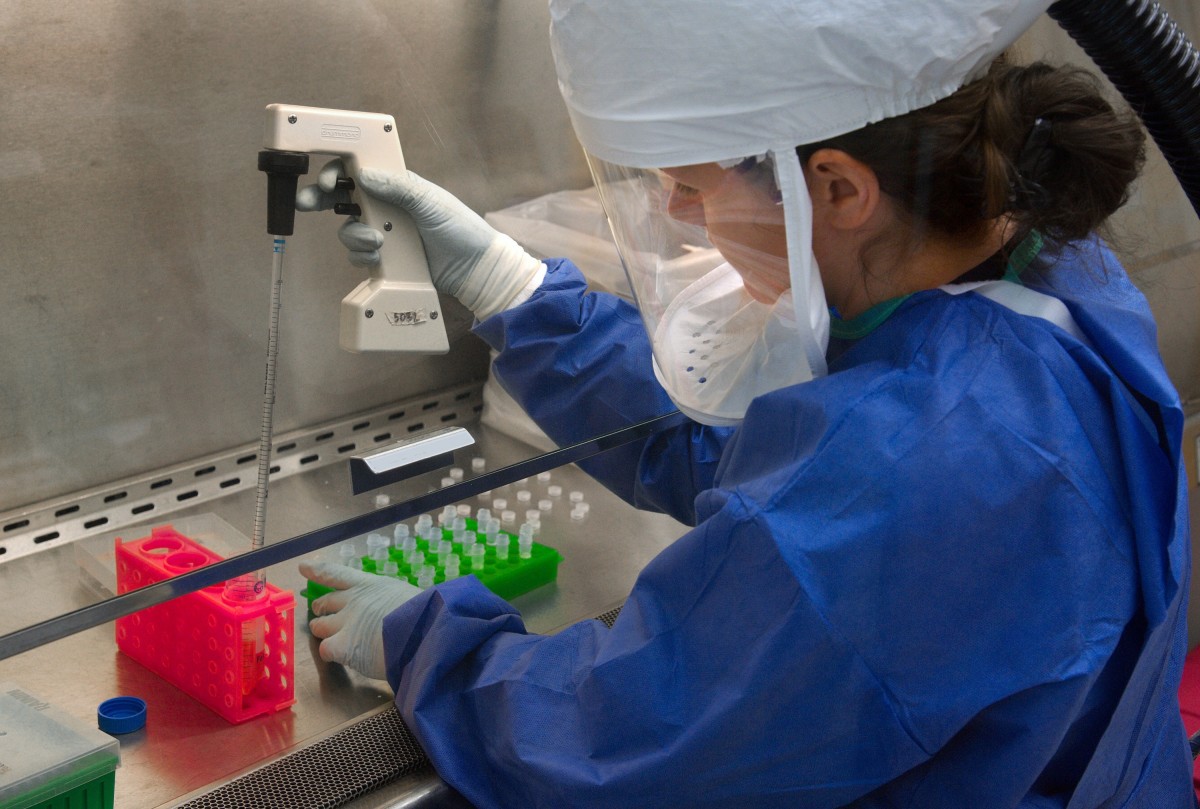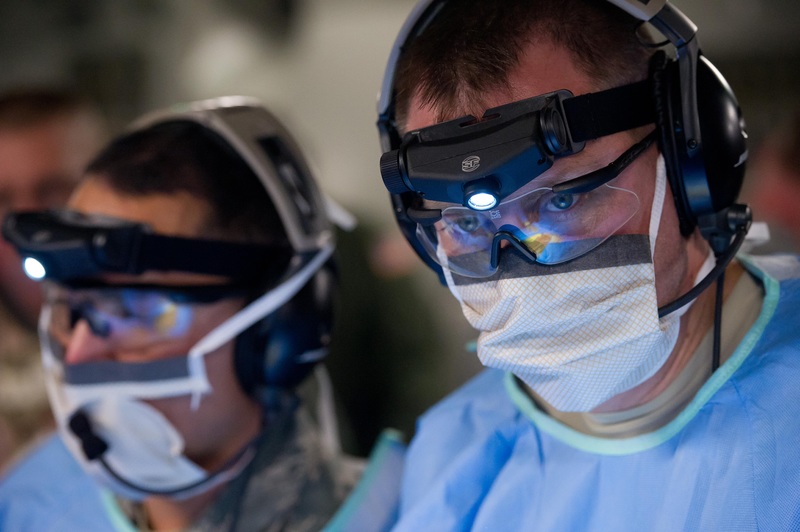Two cases of coronavirus have been confirmed in the UK, Public Health England says.
Professor Chris Whitty, chief medical officer for England, said: “We can confirm that two patients in England, who are members of the same family, have tested positive for coronavirus.

“The patients are receiving specialist NHS care, and we are using tried and tested infection control procedures to prevent further spread of the virus.
“The NHS is extremely well-prepared and used to managing infections and we are already working rapidly to identify any contacts the patients had, to prevent further spread.
“We have been preparing for UK cases of novel coronavirus and we have robust infection control measures in place to respond immediately.

“We are continuing to work closely with the World Health Organisation and the international community as the outbreak in China develops to ensure we are ready for all eventualities.”
It has also been announced that 200 British citizens will be returning to china to be placed in 2 week quarantine somewhere in the Northwest. Many people have spculated that these people could be housed in former nurses quarters or possibly near to the disease control facilities in Liverpool.
Update – it has been confirmed that these people will be kept in Birkenhead at a specialist facility big enough to house them all.
Close to Home…
Paramedics in Hazmat suits rushed a Chinese national to hospital after a coronavirus alert in York.
The man, believed to be a Chinese holidaymaker, was rushed from the Staycity Hotel in York city to hospital on Wednesday night.
The Hazmat suit-clad paramedics made their way to the hotel, near the Barbican theatre, after reports a guest had fallen ill.
It is feared the man is suffering from the coronavirus. The virus has killed 170 people worldwide and been confirmed in 15 countries so far.
A hotel spokesman said: “Staycity Group have confirmed that a man, believed to be a Chinese national, staying at the group’s property in York was taken ill yesterday and is understood to be undergoing tests at a local hospital.
“Paramedics accompanied the man, along with his two travelling companions, out of the property at around 7.50pm last night.
“Staycity is unable to confirm which hospital the three people were taken to or what the outcome of the tests are at this point.
“Until more is known the apartment containing the group’s belongings will be cordoned off, along with surrounding rooms, after which the area will undergo a thorough environmental clean and disinfection, as is company policy.”
(Source – Bolton News)
Update about the quarantine available here from lancs live…
Advice from the Government.
Situation in the UK
Based on the World Health Organization’s declaration that this is a public health emergency of international concern, the UK Chief Medical Officers have raised the risk to the public from low to moderate. This permits the government to plan for all eventualities. The risk to individuals in the UK has not changed at this stage. Our advice for travellers from Wuhan remains unchanged from the below.
As of 30 January, a total of 161 UK tests have concluded, of which 161 were confirmed negative and 0 positive.
1,466 passengers and 95 staff arrived in the UK on direct flights from Wuhan between 10 and 24 January.
- 162 of the passengers have already left the UK
- 760 are now outside of the incubation period
Public Health England are working to contact the remaining passengers.
We have been working in close collaboration with international colleagues and the World Health Organisation to monitor the situation in China and around the world.
If and when a first case in the UK is confirmed, it will be announced as soon as possible by the Chief Medical Officer of the affected country. This will be followed by a statement by England’s Chief Medical Officer, Professor Chris Whitty.
The Department of Health and Social Care will be publishing updated data on this page on a daily basis at 2pm until further notice.

Information about the virus
A coronavirus is a type of virus. As a group, coronaviruses are common across the world. Typical symptoms of coronavirus include fever and a cough that may progress to a severe pneumonia causing shortness of breath and breathing difficulties.
Generally, coronavirus can cause more severe symptoms in people with weakened immune systems, older people, and those with long-term conditions like diabetes, cancer and chronic lung disease.
Novel coronavirus (2019-nCov) is a new strain of coronavirus first identified in Wuhan City, China.
Advice for travellers from Wuhan
If you have returned from Wuhan in the last 14 days:
- stay indoors and avoid contact with other people as you would with other flu viruses
- call NHS 111 to inform them of your recent travel to the city
If you are in Northern Ireland, call your GP.
Please follow this advice even if you do not have symptoms of the virus.
What this means in practice
We are asking people to take simple, common-sense steps to avoid close contact with other people as much as possible, like they would with other flu viruses.
This means remaining at home for 14 days after arriving from Wuhan and not going to work, school or public areas.
Where possible, you should avoid having visitors to your home, but it’s ok for friends, family or delivery drivers to drop off food.
Transport
You should not use public transport or taxis until 14 days after your return from Wuhan.
Getting food and medicine
We recommend that you stay at home for 14 days after arriving from Wuhan, and avoid public places. Where possible, contact a friend, family member or delivery services to carry out errands on your behalf.
Taking children to school
We recommend that you stay at home for 14 days after arriving from Wuhan, and avoid public places. Where possible, contact a friend or family member to take your children to school.
Why the advice has changed
This is an evolving situation and the advice has changed based on emerging information from China about the number of cases and spread of the infection from person to person.
This is a highly precautionary measure to limit the potential spread of infection.
If you develop symptoms
If you develop a fever, cough, runny nose, sore throat or difficulty breathing, you should continue to follow the advice above. Please do not leave your home until you been given advice by a clinician.
Summary of action taken
We have introduced advanced monitoring at airports with direct flights from China.
A team of public health experts has been established in Heathrow to support anyone travelling in from China who feels unwell. These hubs will bring in rotational teams of 7 clinicians, working in shifts, who will be on hand to support patients on arrival. This is in addition to medical staff who are already permanently in place at all UK airports and the advice issued to all UK airports for people travelling to and from China.
The government has issued clinical guidance for the detection and diagnosis of novel coronavirus (2019-nCov), and infection prevention and control.
The Chief Medical Officer, Medical Director at PHE and Medical Director at NHSE/I have issued advice via a CAS (Central Alerting System) alert to frontline staff to increase awareness of the situation and any actions to take.
Most people who develop symptoms will get them after leaving the airport and so the priority is providing UK residents and travellers with the latest information to make sure they know what to do if they experience symptoms, and the NHS and PHE have an established plan to respond to someone who becomes unwell.
China has also introduced port-of-exit screening so people already exhibiting symptoms are not allowed to leave the country.
Diagnosis and analysis
Based on current evidence, novel coronavirus (2019-nCov) presents with flu-like symptoms including a fever, a cough, or difficulty breathing. The current evidence is that most cases appear to be mild. Those who have died in Wuhan appear to have had pre-existing health conditions.
The UK is now one of the first countries outside China to have a prototype specific laboratory test for this new disease. Healthcare professionals who are contacted by a patient with symptoms following travel to Wuhan have been advised to submit samples to PHE for testing. Individuals should be treated in isolation
After the experience of severe acute respiratory syndrome (SARS) in 2003, PHE developed a series of diagnostic tests to detect any member of the family of coronaviruses. These have been used for several years, and were able to detect the first UK case of Middle East respiratory syndrome (MERS) in 2012.
With the first reported publication of the genome sequence of a 2019 novel coronavirus, PHE was able to rapidly develop further specific tests for this virus, working with WHO and global network of laboratories.
When a clinician suspects novel coronavirus (2019-nCov), they take samples from the nose, throat and deeper respiratory samples, package and send them safely to PHE Colindale. PHE can provide a laboratory result from this specific virus on the same working day.
PHE also has the capability to sequence the viral genome and compare this to published sequences from China, if a case occurs. This will provide valuable information on any mutations in the virus over time and allow an improved understanding of how it spreads.
Further information
- Statement from the four UK Chief Medical Officers on Novel Coronavirus
- British nationals in Hubei Province: Foreign Office statement
- CMO for England statement on novel coronavirus (2019-nCov) (24 January 2020)
- joint statement from DHSC and PHE on novel coronavirus (2019-nCov) (22 January 2020)
- clinical guidance on novel coronavirus (2019-nCov)
- Novel coronavirus (2019-nCov) and avian flu: advice for travel to China
- Novel coronavirus (2019-nCov) – NHS
More to follow.








